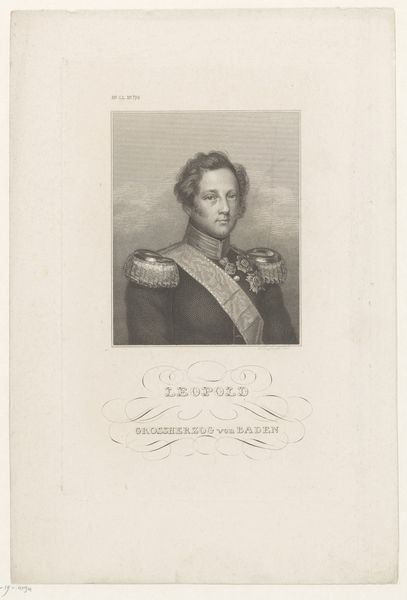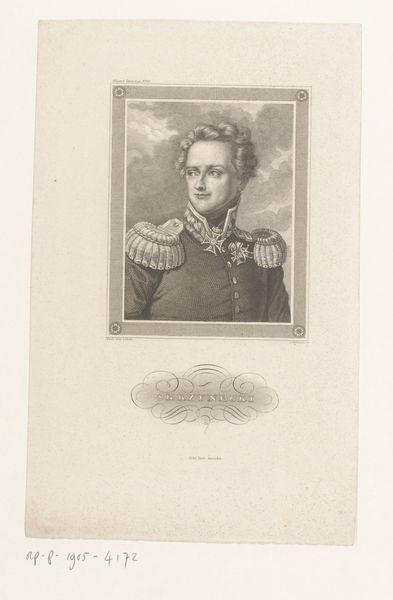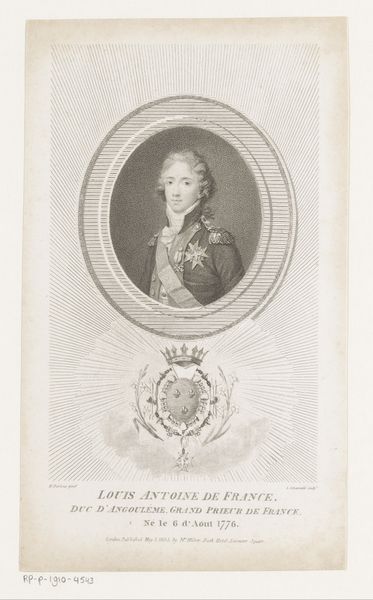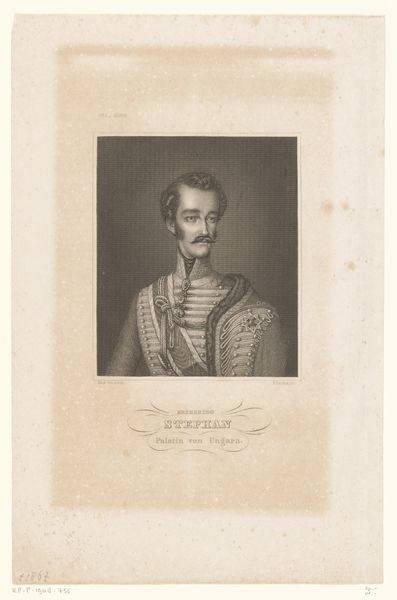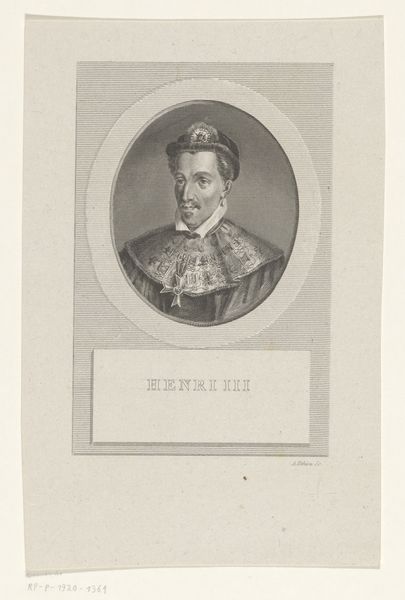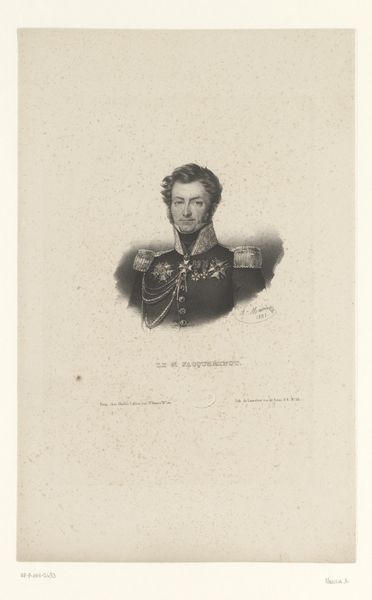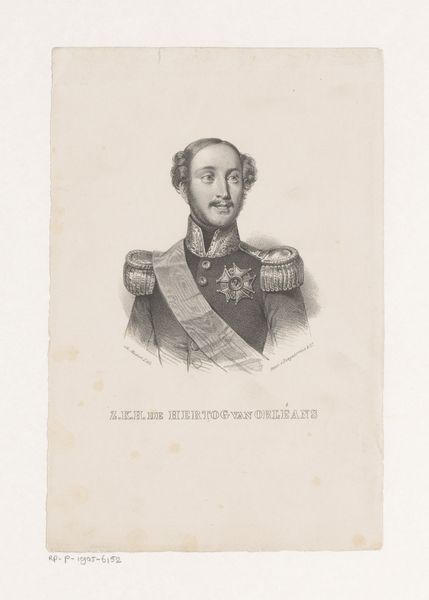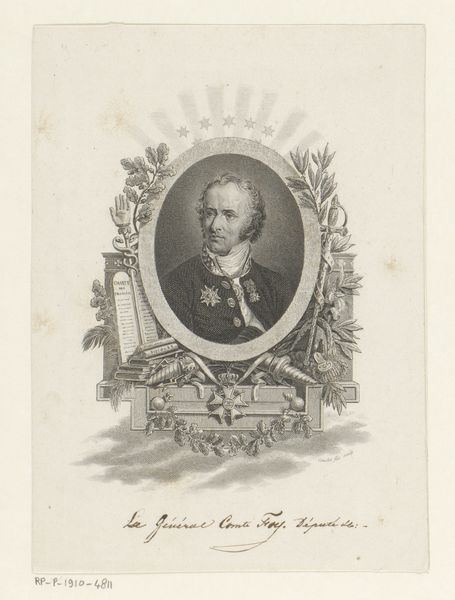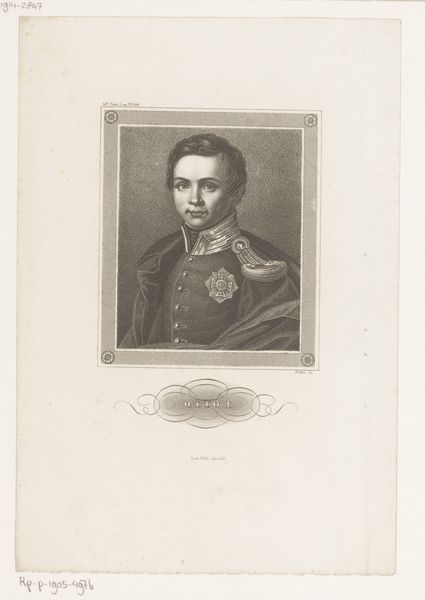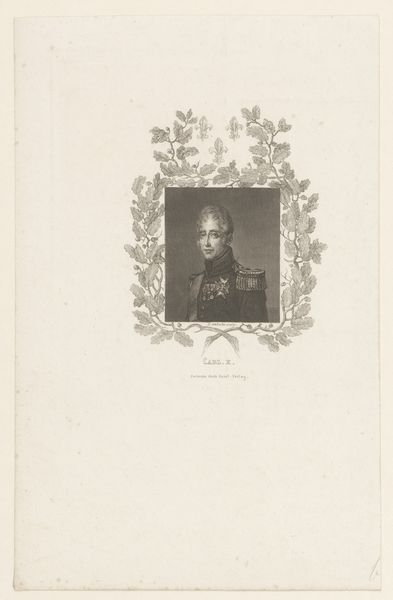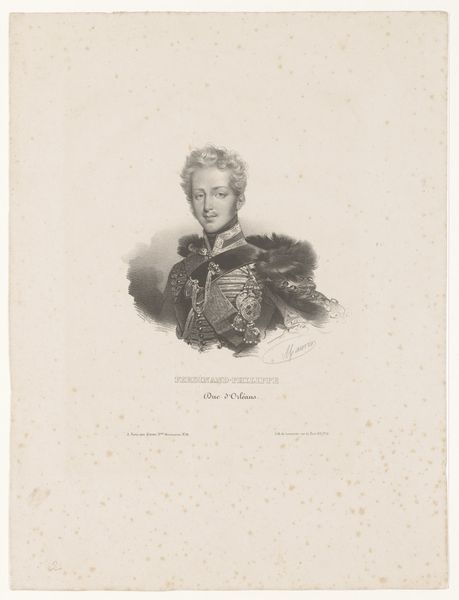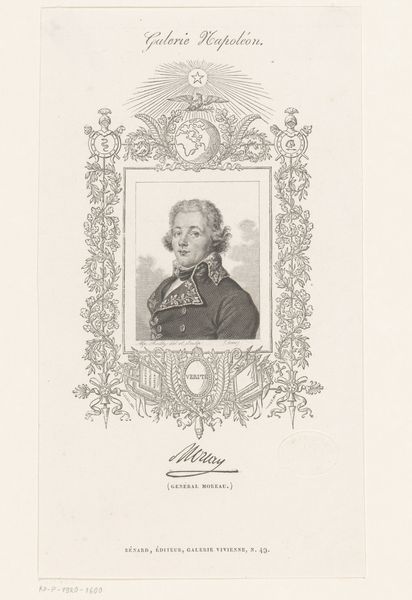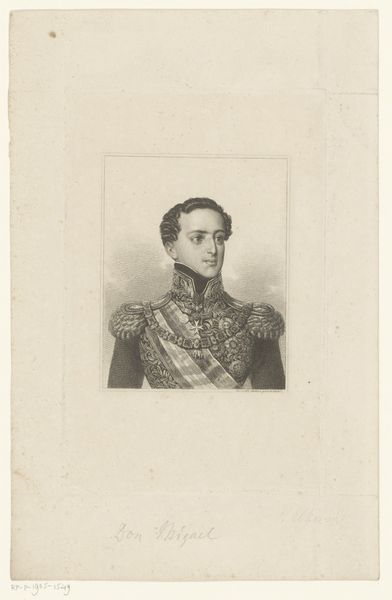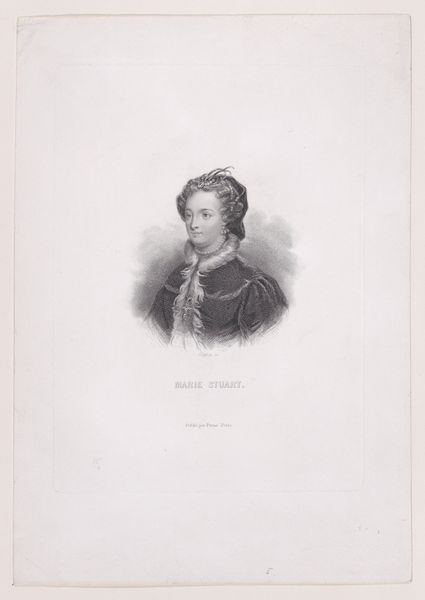
print, graphite, engraving
#
portrait
# print
#
romanticism
#
graphite
#
history-painting
#
engraving
Dimensions: height 192 mm, width 126 mm
Copyright: Rijks Museum: Open Domain
Ferdinand Bahmann produced this portrait of Carl Egon II zu Fürstenberg using etching and line engraving techniques. Looking at this portrait, we should consider how the image creates meaning through visual codes and cultural references. The image presents the sitter in a formal, hierarchical pose that reinforces his noble status. The details of his uniform, the medals and the sash, all work to convey authority and power. Ferdinand Bahmann was working in a Germany that was deeply divided along class lines. Institutional structures such as the aristocracy perpetuated rigid social norms and this portrait reflects the conservative values of the time. To understand this image better, historians consult resources that explore not just the sitter and the artist but also the social and institutional context in which they operated. By combining close visual analysis with careful research, we can better appreciate art as something contingent on social and institutional context.
Comments
No comments
Be the first to comment and join the conversation on the ultimate creative platform.
